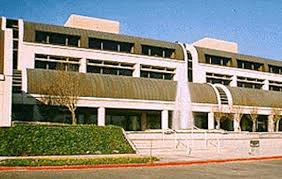In order to obtain a Certificate of Rehabilitation pursuant to Penal Code section 4852.01, the petitioner generally must fulfill the following requirements:
(1) Be an individual who was convicted of a felony OR an individual who was convicted of a misdemeanor Section 290 sex offense that has been granted relief under Section 1203.4;
(2) Has not been incarcerated in any other state penal institution since his or her release;
(3) Is not on probation for any other felony offense; and
(4) Must present evidence that he or she has been a resident of California for five years preceding the filing of the petition.[1]
A person convicted of violating Penal Code section 647.6 is generally required to register pursuant to Penal Code section 290. Therefore, if the petitioner has been convicted of Penal Code section 647.6 as a misdemeanor, has been ordered to register pursuant to Penal Code section 290, and has since been granted an expungement pursuant to Penal Code section 1203.4, the person’s offense would be eligible for a Certificate of Rehabilitation.
According to Penal Code section 4852.03, a person must wait an additional five years (in addition to the five year residency requirement) from release from custody to petition for a Certificate of Rehabilitation if the offense for which he or she is petitioning for relief is an offense that requires sex registration. Therefore, a person convicted of violating Penal Code section 647.6 must wait a total of ten years to petition for a Certificate of Rehabilitation.
A Certificate of Rehabilitation will not relieve a person convicted of Penal Code section 647.6 of the duty to register pursuant to Penal Code section 290. To be relieved of this duty, the person must generally receive a full pardon from the Governor. However, once a person is granted a Certificate of Rehabilitation, the Governor automatically receives an application for pardon and it is in Governor’s discretion to grant the full pardon.
The law regarding the duty to register pursuant to Penal Code section 290 was dramatically altered by the recent enactment of SB-393. Visit our Blog Page within the next week for more information on SB-393.
DISCLAIMER:
The information in this blog post (“post”) is provided for general informational purposes only, and may not reflect the current law in your jurisdiction. No information contained in this post should be construed as legal advice from Escovar Law, APC or the individual author, nor is it intended to be a substitute for legal counsel on any subject matter. No reader of this post should act or refrain from acting on the basis of any information included in, or accessible through, this Post without seeking the appropriate legal or other professional advice on the particular facts and circumstances at issue from a lawyer licensed in the recipient’s state, country or other appropriate licensing jurisdiction. The information on this website is a communication and is for informational purposes only. The facts of every case are unique and nothing on this page or on this website should be taken as legal advice for any individual case or situation. The information on this website is not intended to create an attorney-client relationship and viewing of this information does not create an attorney-client relationship. The result portrayed in this advertisement was dependent on the facts of this case. Results will differ if based on different facts.
[1] See full text of Penal Code section 4852.01 at the following link:
http://leginfo.legislature.ca.gov/faces/codes_displaySection.xhtml?lawCode=PEN§ionNum=4852.01

